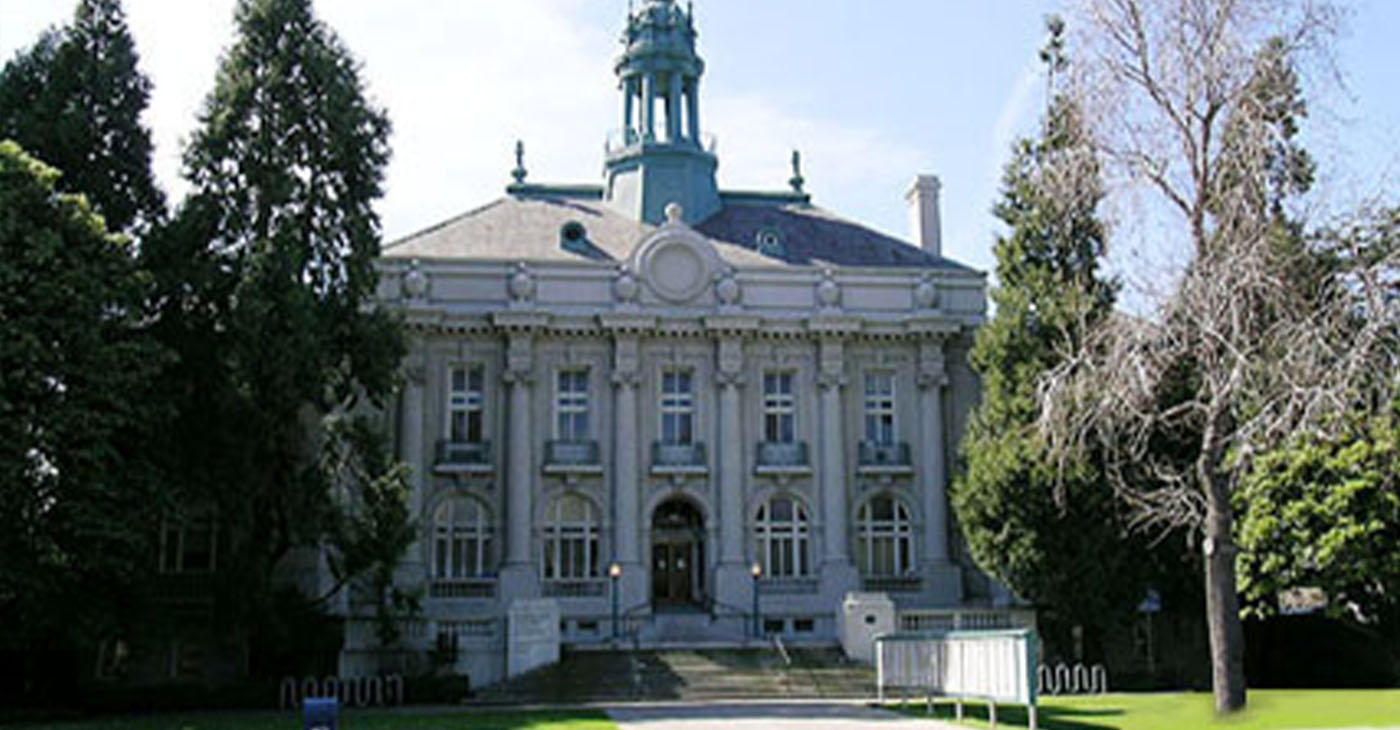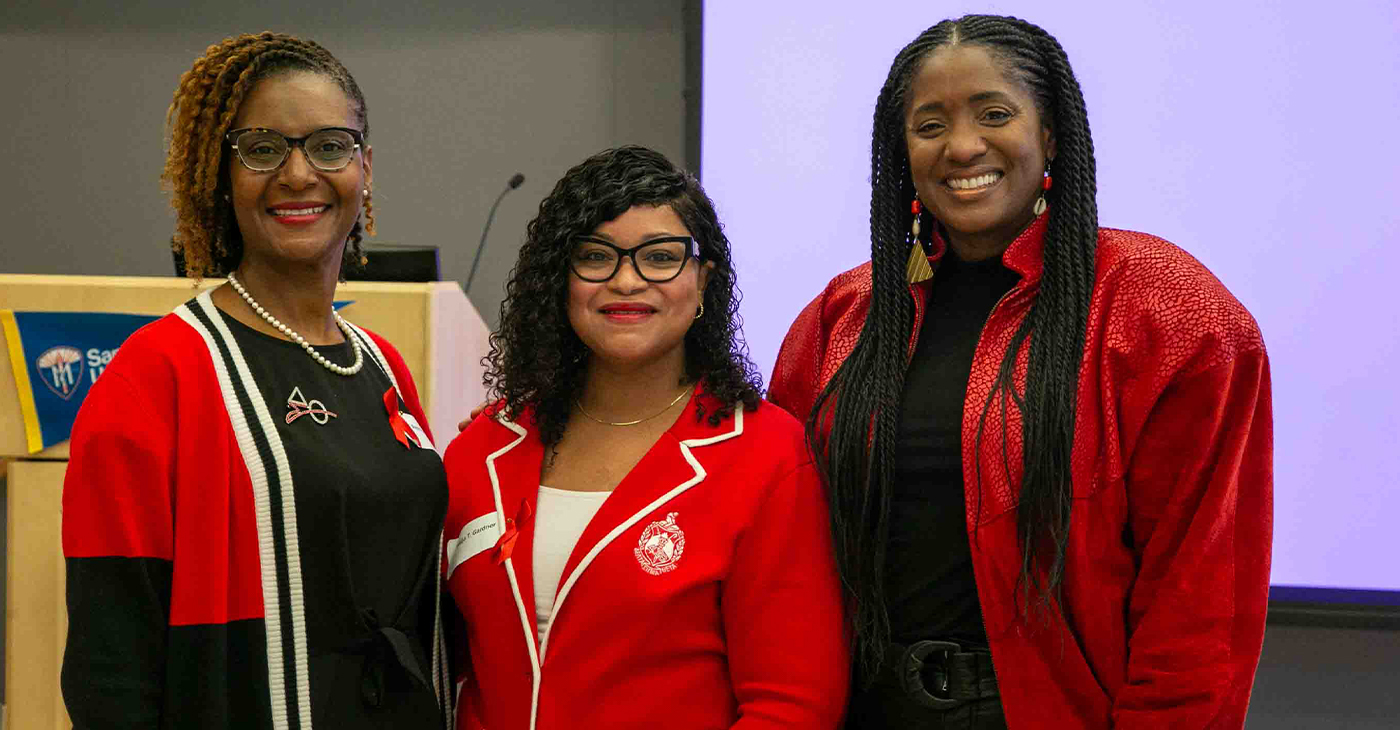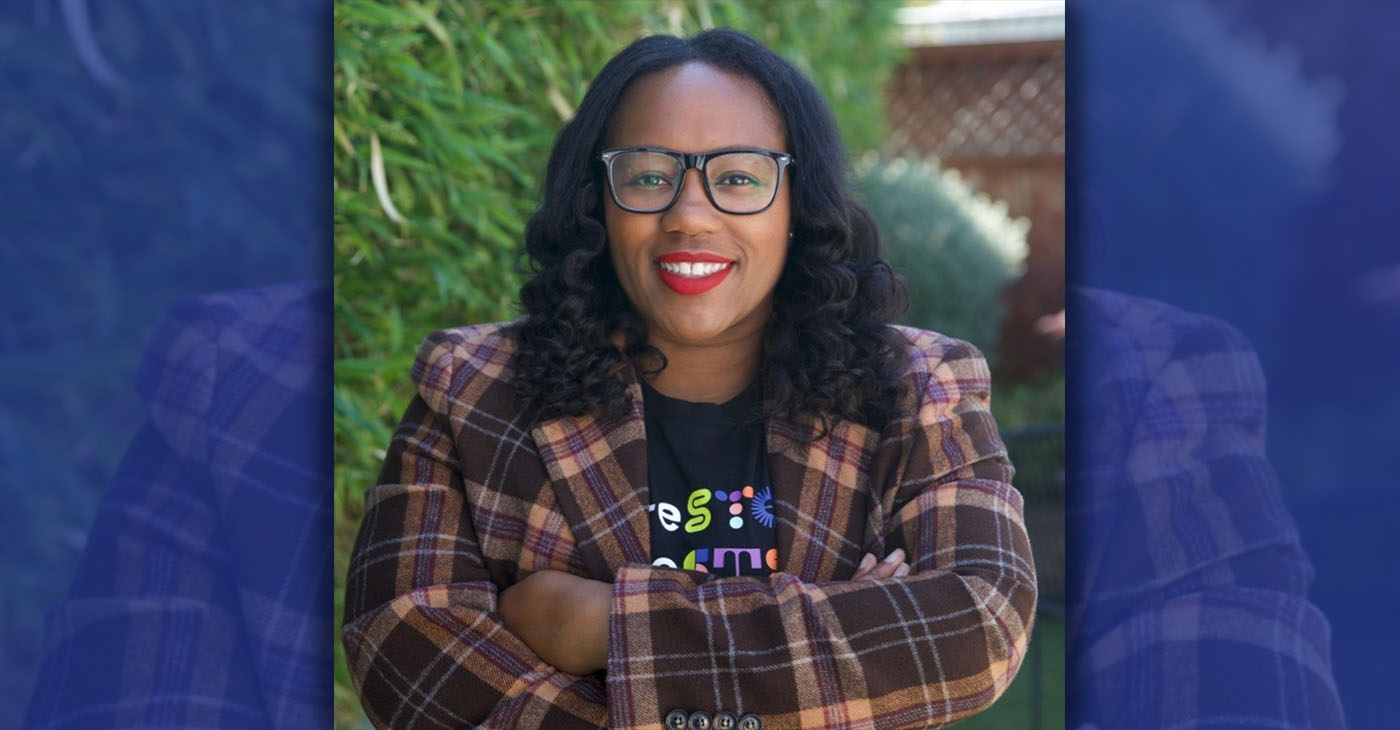Bay Area
Berkeley Considers New Law to Help Tenants Buy Where They Rent
Renée, a Berkeley resident, was dismayed last summer when she saw the final sale price of the four-plex where she and members of her family have lived for 20 years. It wasn’t because the amount was high – it is Berkeley, after all. She was shocked because she’d bid on the property and offered $44,000 more than the new owner paid for it. It just didn’t make sense. Then she found out why her landlord wouldn’t sell it to her. “I didn’t want to sell to you because of [your nephew], I don’t trust him,” the landlord said.

By Chris Schildt
Friends of Adeline
Renée, a Berkeley resident, was dismayed last summer when she saw the final sale price of the four-plex where she and members of her family have lived for 20 years. It wasn’t because the amount was high – it is Berkeley, after all.
She was shocked because she’d bid on the property and offered $44,000 more than the new owner paid for it. It just didn’t make sense. Then she found out why her landlord wouldn’t sell it to her.
“I didn’t want to sell to you because of [your nephew], I don’t trust him,” the landlord said.
An African American small business owner for many years, Renée was hardly unfamiliar with racist dog whistles and the stereotyping of her family members — but this one hit hard.
When the new owner took over, she started making troubling changes that threatened Renée’s ability to operate her licensed in-home daycare. With the help of the Eviction Defense Center and the Berkeley Rent Stabilization Board, she and her fellow tenants have been able to halt efforts to increase the rent and other unlawful acts. But if her previous landlord had sold her the building, she never would have had to deal with this harassment.
“I have felt discriminated against and harassed by these intimidating practices on the basis of my age, gender, race, and economic status,” said Renée. “I feel this type of intimidation is an effort to frustrate me into leaving the place my family and I have lived in for decades.”
Displacement in Berkeley’s African American community is rampant, caused by the steep decline of renters who make up two-thirds of Black households in the city. Like Renée, many have lived in their homes for decades. But even with the city’s robust rent control laws and anti-eviction protections, many find it hard to stay because outside investors buy homes and push tenants out.
This is especially true in historically African American South Berkeley, where Renée lives and where one-bedroom apartment rents have skyrocketed to $2,000 a month or more.
The Berkeley City Council is considering legislation that would help prevent the kind of displacement pressures Renée and other tenants face.
The Tenant Opportunity to Purchase Act (TOPA) helps tenants to become first-time homeowners by giving them an opportunity to buy their homes when their landlord decides to sell. If the landlord decides not to take the tenant’s offer, TOPA gives tenants a chance to match any other offer the landlord receives. For Renée, this would have given her the chance to own her home – and for $44,000 less than she had originally offered.
Another South Berkeley resident, Jonathan (not his real name), an immigrant from Africa, has lived in his apartment for over 30 years. When the property went up for sale last year, he wasn’t concerned – he’s lived there through three different owners and has gotten along with all of them in the past. This time, however, the new owners made it clear that they wanted him gone.
He looked for other housing options in South Berkeley near his job but found nothing at the price he currently pays for his rent-controlled apartment. The Eviction Defense Center was able to help him negotiate to stay in his own apartment, but he no longer feels welcome at home and worries that his landlords might try to force him out again.
TOPA allows tenants to work with land trusts and nonprofits to help fund the purchases and designates the home as affordable housing if public subsidies are used to buy it. In San Francisco, a similar law has helped preserve over 200 units as affordable housing since it passed in 2019.
TOPA was first introduced as an ordinance in 2020 in Berkeley and was reintroduced this past fall when investor purchases and a surge in evictions renewed interest in this policy.
TOPA is supported by the Berkeley NAACP branch, Healthy Black Families, the Berkeley Black Ecumenical Ministers Alliance, the Friends of Adeline, and others. Advocates for fairness and affordable housing are urging community members to contact Berkeley City Council members and ask them to support TOPA.
For more information on TOPA and guidance on how to take action, please visit www.yes2topa.org. To get involved, please contact the Friends of Adeline at friendsofadeline@gmail.com.
Activism
Post News Group to Host Second Town Hall on Racism, Hate Crimes
The mission of CRD is to protect the people of California from unlawful discrimination in employment, housing and public accommodations (businesses) and from hate violence and human trafficking in accordance with the Fair Employment and Housing Act (FEHA), Unruh Civil Rights Act, Disabled Persons Act, and Ralph Civil Rights Act. The employment anti-discrimination provisions of the FEHA apply to public and private employers, labor organizations and employment agencies. “Housing providers” includes public and private owners, real estate agents and brokers, banks, mortgage companies, and financial institutions.

By Oakland Post Staff
On Tuesday, Dec. 10, from 5-6:30 p.m. PT, Post News Group Global Features Journalist Carla Thomas will host a second Virtual Town Hall on Racism.
Guests will include community builders Trevor Parham of Oakstop and Shawn Granberry of Hip Hop TV.
“There’s been an uptick of blatant racist acts going on in the community and it’s important for communities to have a forum, an outlet, and to be educated on the California Vs. Hate initiative that has resources available for victims and witnesses,” said Thomas. People like Trevor Parham and Shawn Granberry have found a multitude of ways to strengthen, heal, and protect the community through their entrepreneurial networks, special events, and mentoring.”
While community leaders step up, the state has added extra support with the CA vs. Hate, initiative, a non-emergency hate incident and hate crime reporting system to support individuals and communities targeted for hate.
“We are committed to making California a safer and inclusive place for all,” said James Williams, Jr. of the California Civil Rights Department.
In partnership with organizations across the state, the network is designed to support and protect diverse and underserved communities.
“Through CA vs. Hate, we support individuals and communities targeted for hate, identify options for next steps after an act of hate, and connect people with culturally competent resources and care coordination services,” said Williams.
“It’s important to report these incidents in order for us to use the data to enhance prevention and response services,” said Williams.
Funded by the California State Legislature, the California Civil Rights Department (CRD) received funding and authorization from the State Legislature to establish the non-emergency, CA vs. Hate Resource Line and Network to support individuals and communities targeted for hate.
The mission of CRD is to protect the people of California from unlawful discrimination in employment, housing and public accommodations (businesses) and from hate violence and human trafficking in accordance with the Fair Employment and Housing Act (FEHA), Unruh Civil Rights Act, Disabled Persons Act, and Ralph Civil Rights Act. The employment anti-discrimination provisions of the FEHA apply to public and private employers, labor organizations and employment agencies. “Housing providers” includes public and private owners, real estate agents and brokers, banks, mortgage companies, and financial institutions.
CRD began in 1959 with the creation of the Fair Employment Practices Commission to implement California’s first state-wide protections against discrimination in the workplace. In 1980, the 1959 Fair Employment Practices Act, and the 1963 Rumford Fair Housing Act were combined and rebranded FEHA. The Fair Employment Practices Commission became a department-level agency named the Department of Fair Employment and Housing (DFEH) to enforce that law.
In July 2022, DFEH’s name changed to CRD to more accurately reflect the Department’s powers and duties, which include enforcement of laws prohibiting hate violence, human trafficking, discrimination in business establishments, and discrimination in government-funded programs and activities, among others.
For more information visit the PostNewsGroup.com and CAvsHATE.ORG.
Activism
Delta Sigma Theta Alumnae Chapters Host World AIDS Day Event
With members from Berkeley Bay Area, Oakland East Bay (OEB) and Hayward Tri-City chapters present, the event opened with Oakland City Councilmember Treva Reid sharing data and legislation that has passed to address the safety, health, and well-being of Black women in the state of California. Attendees were able to learn directly from expert guest speakers, including Shimere Harrington from ViiV Healthcare, Barbara Green-Ajufo, an epidemiologist from UCSF Center for AIDS Prevention Studies (CAPS), and Dot Theodore, director of the HIV Care Program Division of Center for Disease Control and Prevention (CDC) for Alameda County.

By Don-Neva E. Johnson and Petrina Alexander Perteet
Special to The Post
The International Awareness and Involvement (IA&I) committees of East Bay chapters of Delta Sigma Theta Inc. proudly hosted a successful World AIDS Day event on Dec.1, bringing together community members, healthcare professionals, and advocates to raise awareness and support the fight against HIV/AIDS.
With members from Berkeley Bay Area, Oakland East Bay (OEB) and Hayward Tri-City chapters present, the event opened with Oakland City Councilmember Treva Reid sharing data and legislation that has passed to address the safety, health, and well-being of Black women in the state of California.
Attendees were able to learn directly from expert guest speakers, including Shimere Harrington from ViiV Healthcare, Barbara Green-Ajufo, an epidemiologist from UCSF Center for AIDS Prevention Studies (CAPS), and Dot Theodore, director of the HIV Care Program Division of Center for Disease Control and Prevention (CDC) for Alameda County.
The speakers provided valuable insights into the current state of HIV/AIDS, advancements in treatment, and the importance of prevention and support.

L-R Petrina A. Perteet, Dr. Natalie Wilson, Don-Neva Johnson, Tracy Diop, Sonji Walker and Takija Gardner were part of the World AIDS Day event. Photo by Kevin Hicks.
“The outcome of this day is more than what we could have hoped for, and we are deeply grateful for the participation of our distinguished speakers and the support of our sponsors,” said Don-Neva Johnson and Tracy Diop, IA&I committee chairs for Berkeley Bay Area and Hayward Tri-City.
“Their contributions helped us create an informative and empowering event for our community,” said event organizer Dr. Natalie Wilson, associate professor of UCSF School of Nursing and IA&I committee chair.
Held at the Samuel Merritt Health Education Center at 400 Hawthorne Ave. in Oakland, the event was made possible by the generous support of sponsors ViiV healthcare, Gilead Sciences, and Good Health WINs. Attendees received gift bags and had the opportunity to engage with educational tables from Gilead, participate in a Q&A session with speakers led by Wilson.
Delta Sigma Theta Incorporated is an organization of college-educated women committed to the development of its members and offer public service with a primary focus on the Black community. We are dedicated to empowering our communities through education, advocacy, and support around the world.
Activism
Self-eSTEM Empowers BIPOC Women, Girls in Science, Math
In January 2025, Self-eSTEM will launch digital and generative AI programming, which provides digital literacy and AI literacy training through an entrepreneurial project-based activity. This programming will be a hybrid (i.e. in-person and online). Additionally, thanks to a grant from Comcast, in spring 2025, the organization will have a co-ed series for middle and high school students.

By Y’Anad Burrell
Special to The Post
In a world where technology plays an increasingly central role in all aspects of life, the importance of Science, Technology, Engineering, and Math (STEM) education cannot be overstated. Recognizing the significance of STEM for the future, focusing on young women and girls is a critical step in achieving gender equality and empowering the next generation.
Self-eSTEM, an Oakland-based non-profit organization, was founded by Adamaka Ajaelo, an Oakland native who had a successful corporate career with several Bay Area technology and non-tech companies. Ajaelo boldly decided to step away from these companies to give 100% of her time and talent to the non-profit organization she started in 2014 in the belief that she can change the game in innovation and future STEM leaders.
Over the course of a decade, Ajaelo has provided futurist tech programming to more than 2,000 BIPOC women and girls. The organization has an Early STEM Immersion Program for ages 7-17, Emerging Leaders Workshops for ages 18-25 and volunteer network opportunities for ages 25 and up.
In January 2025, Self-eSTEM will launch digital and generative AI programming, which provides digital literacy and AI literacy training through an entrepreneurial project-based activity. This programming will be a hybrid (i.e. in-person and online). Additionally, thanks to a grant from Comcast, in spring 2025, the organization will have a co-ed series for middle and high school students.
While the organization’s programs center on innovation and technology, participants also gain other valuable skills critical for self-development as they prepare for a workforce future. “Self-eSTEM encourages young women to expand on teamwork, communication, creativity, and problem-solving skills. The organization allows young women to enter STEM careers and pathways,” said Trinity Taylor, a seventh-year innovator.
“Our journey over the last decade is a testament to the power of community and opportunity, and I couldn’t be more excited for what the future holds as we continue to break barriers and spark dreams,” said Ajaelo.
“By encouraging girls to explore STEM fields from a young age, we foster their intellectual growth and equip them with the tools needed to thrive in a competitive global economy,” Ajaelo says.
Empowering young girls through STEM education is also a key driver of innovation and progress. When young women and girls are encouraged to pursue careers in STEM, they bring unique perspectives and problem-solving approaches to the table, leading to more diverse and inclusive solutions. This diversity is crucial for driving creativity and pushing boundaries in scientific and technological advancements.
Self-eSTEM has fundraising opportunities year-round, but year-end giving is one of the most critical times to support the program. Visit www.selfestem.org to donate to the organization, as your generosity and support will propel programming support for today’s innovators.
You will also find more details about Self-eSTEM’s programs on their website and social channels @selfestemorg
-

 Activism4 weeks ago
Activism4 weeks agoLIVE! — TOWN HALL ON RACISM AND ITS IMPACT — THURS. 11.14.24 5PM PST
-

 Activism3 weeks ago
Activism3 weeks agoAn Inside Look into How San Francisco Analyzes Homeless Encampments
-

 Activism3 weeks ago
Activism3 weeks agoOakland Post: Week of November 20 – 26, 2024
-

 California Black Media2 weeks ago
California Black Media2 weeks agoCalifornia to Offer $43.7 Million in Federal Grants to Combat Hate Crimes
-

 California Black Media2 weeks ago
California Black Media2 weeks agoCalifornia Department of Aging Offers Free Resources for Family Caregivers in November
-

 #NNPA BlackPress3 weeks ago
#NNPA BlackPress3 weeks agoPRESS ROOM: Clyburn, Pressley, Scanlon, Colleagues Urge Biden to Use Clemency Power to Address Mass Incarceration Before Leaving Office
-

 Black History2 weeks ago
Black History2 weeks agoEmeline King: A Trailblazer in the Automotive Industry
-

 Activism4 weeks ago
Activism4 weeks agoOakland Post: Week of November 13 – 19, 2024




























































